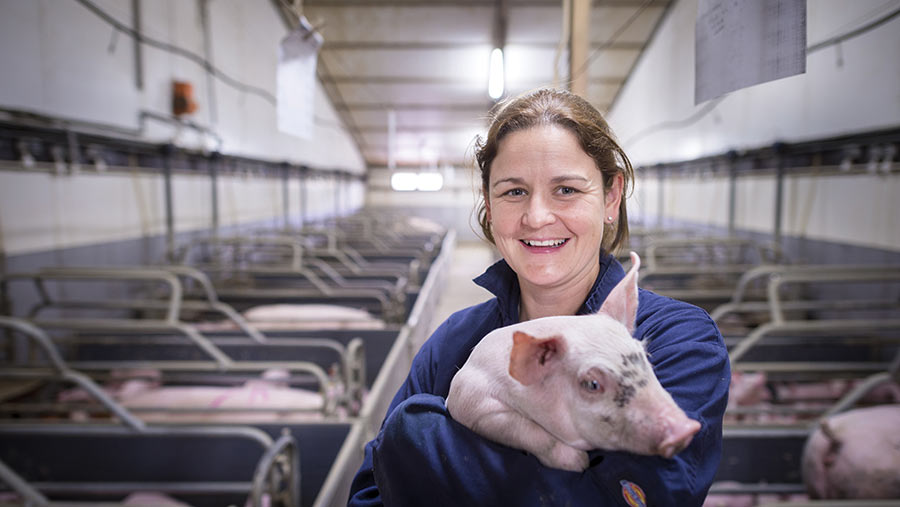Farmer focus: 7 finisher diets to ensure best weight gain
 ©Jim Varney
©Jim Varney Dad has always gone on to my sister and me about how important it is to measure everything – and I mean everything.
Since Mum and Dad started with pigs they know everything about each pig they have ever sold, everything about every bit of equipment ever bought and generally, if it’s cost us or if we have gained from it, we know how much and why.
I have to say it’s a great way to be, but you also have to be a bit of an excel geek. Luckily I’m learning fast and as long as it’s for a limited amount of time, I don’t actually mind it.
See also: Read more from the livestock farmer focus writers
On the breeding side of the business, it’s relatively easy to know what you put in and out as it’s on our farm and is only two units. However, monitoring everything in and out of finishing units is a little trickier, but I think we do it fairly well.
Making sure I know what feed has gone on to each unit and the average pig weight in and out all helps me work out the unit’s food conversion rate and daily liveweight gain. I monitor every batch of pigs and we are constantly looking at ways to improve our efficiency.
Currently, I’m spending a lot of time on the grading of our outdoor pigs. They are just pushing on the fat side, which is costing me a considerable amount of money given the current market. I’m therefore working closely with our nutritionist to try and make sure the right amount of energy is going into the pigs.
Our finishers have seven different rations throughout their lives and changing them from one diet to another a week late can be a costly business, not only on the grading but also the cost of feed a pig.
What is becoming more apparent is that not every yard is the same. For years we have fed all our pigs the same amount of each diet, but I now know I need to be more flexible, which is doable with better communication between farmer, fieldsman and mill man.
Kate Morgan and family farm 1,700 sows indoors in East Yorkshire and 1,200 outdoors in North Yorkshire, taking all the progeny through to slaughter. Kate is a 2012 Nuffield Scholar.

